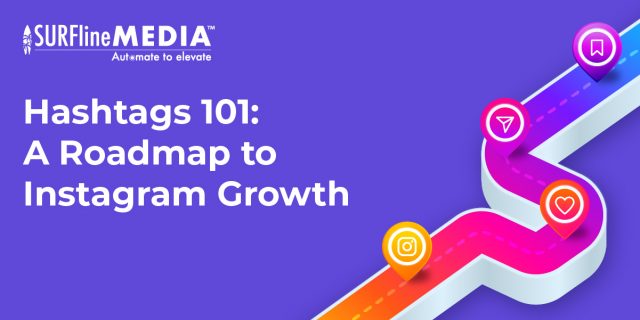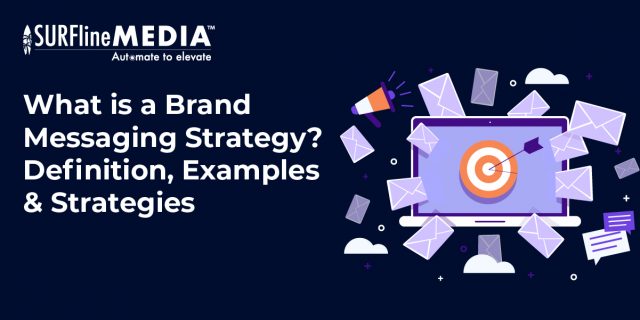
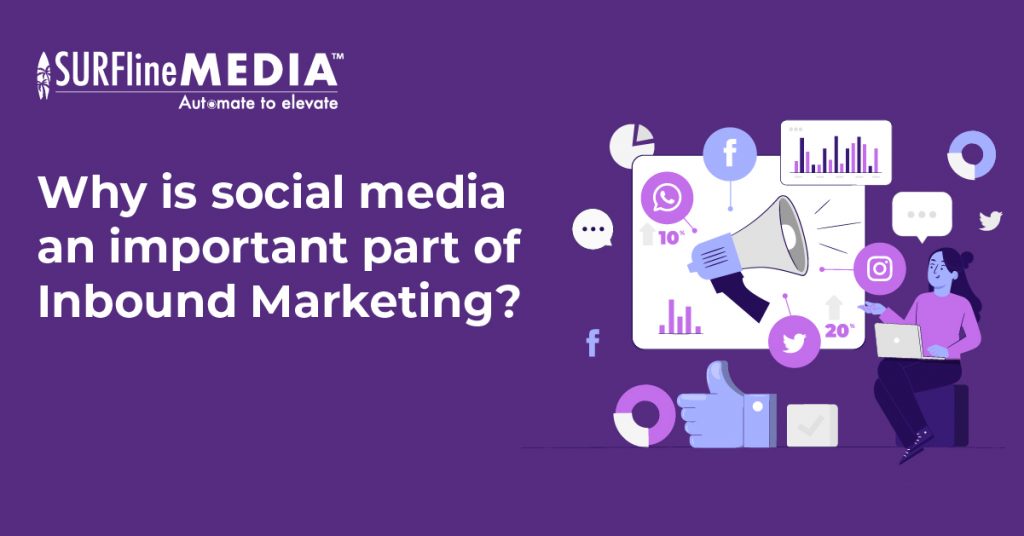
- July 28, 2023
- 2:25 am
- No Comments
Why is Social Media an Important Part of Inbound Marketing in 2023?
In today’s fast-paced and digital-centric world, social media has emerged as a powerful force in the realm of inbound marketing. Consumers increasingly rely on social platforms for information, entertainment, and communication. Therefore, businesses have recognized the necessity of a strong social media presence to reach and engage their target audience. This blog explores “why is social media is an important part of Inbound Marketing strategies?”. Let’s delve into the various ways it fosters brand growth, enhances customer relationships, and drives meaningful results.
Why is social media an important part of Inbound Marketing: Definition of Inbound Marketing
Inbound Marketing is a customer-centric approach to marketing that focuses on attracting and engaging potential customers through valuable experiences. Unlike traditional outbound marketing, which involves pushing promotional messages to a broad audience, inbound marketing seeks to pull in prospects by providing them with relevant and useful information.
With compelling content, such as blogs, and social media updates, businesses aim to establish their trust with their target audience. Through search engine optimization (SEO) and social media, inbound strategies enable companies to be discovered by those actively seeking solutions.

Outbound Marketing vs. Inbound Marketing (by: Surfline Media)
Inbound marketing can effectively increase the conversion rate. This refers to the percentage of visitors who take the desired action (making a purchase or filling out a form). By delivering tailored content to users, inbound marketing nurtures leads through their journey, turning them into brand advocates. The personalized and non-intrusive nature of inbound marketing makes it more appealing to modern consumers. It is because they can engage with brands on their own terms and feel empowered in their decision-making process.
Inbound marketing can result in a 10-20% increase in website traffic and generate 61%-cheaper leads than outbound marketing. Moreover, companies that prioritize inbound strategies experience a 55% higher conversion rate compared to those solely relying on outbound tactics.
As consumer behavior continues to evolve, embracing inbound marketing has become vital for businesses looking to thrive now. By understanding what Inbound Marketing is, we can answer “Why is social media an important part of Inbound Marketing?”.
Role of social media in modern marketing strategies
In the rapidly evolving landscape of modern marketing, social media has emerged as a powerful and indispensable tool for businesses to connect with their target audience and drive their marketing strategies forward.
Social media platforms offer an unprecedented level of reach, enabling businesses to engage with millions of potential global customers. By leveraging the vast user base of platforms like Facebook and LinkedIn, companies can build brand awareness, and foster brand loyalty.
The role of social media in modern marketing strategies goes beyond mere presence and promotion. It facilitates two-way communication, allowing businesses to interact directly with their customers. This interactive element is vital for understanding consumer preferences, gathering feedback, and addressing concerns promptly. It can significantly enhance a brand’s reputation and customer satisfaction.
Moreover, social media provides a platform for businesses to humanize their brand by showcasing their company culture and behind-the-scenes activities. Thereby, social media fosters a sense of authenticity and builds trust with its audience.
The growth of social media as a marketing force has been nothing short of remarkable. Over the past decade, the number of active users on platforms has skyrocketed, with billions regularly engaging with content. This immense growth has transformed how businesses approach their marketing strategies. Traditional advertising channels, such as television and print media, are being supplemented by social media campaigns, given the cost-effectiveness.
The importance of social media in full-funnel marketing strategy can be highlighted by some staggering statistics. For instance, over 90% of marketers have indicated that social media has played a crucial role in increasing their exposure. It underscores the pivotal role that social media plays in shaping consumer behavior and influencing purchase decisions. Then when being integrated with Inbound Marketing, why is it an important part of Inbound Marketing?
Why is Social Media an important part of Inbound Marketing?
Social Media and Search Engine Optimization (SEO)
Social media and search engine optimization (SEO) are two integral components of modern digital marketing strategies. Companies that effectively integrate these two elements can significantly enhance their online visibility, brand reputation, and customer engagement.
A compelling example of this integration is the social media campaign by Airbnb. Through creative and shareable content on platforms like Instagram and Twitter, Airbnb engaged users worldwide, encouraging them to share their unique travel experiences using the hashtag #LiveThere.
The campaign’s success led to an influx of user-generated content and social media mentions, driving social signals and boosting Airbnb’s SEO rankings. As a result, the company experienced increased organic traffic to its website, translating into higher bookings and revenue. Airbnb not only connected with its target audience but also solidified its position as a leading player in the hospitality industry.

Airbnb’s Live There
Social Media’s Impact on Customer Engagement
Social media has transformed the landscape of customer engagement, enabling businesses to directly connect with their audience in real-time and on a personal level of social media engagement.
One remarkable example of this impact is how Wendy’s, a fast-food chain, leveraged Twitter to engage with customers in a witty and humorous manner. Through their sassy and entertaining responses to customer tweets, Wendy’s gained significant attention and a devoted following on the platform. Their engagement style became so popular that people would intentionally tweet at Wendy’s just to receive a clever response. This approach not only strengthened customer loyalty but also generated extensive media coverage, amplifying Wendy’s brand presence even further.
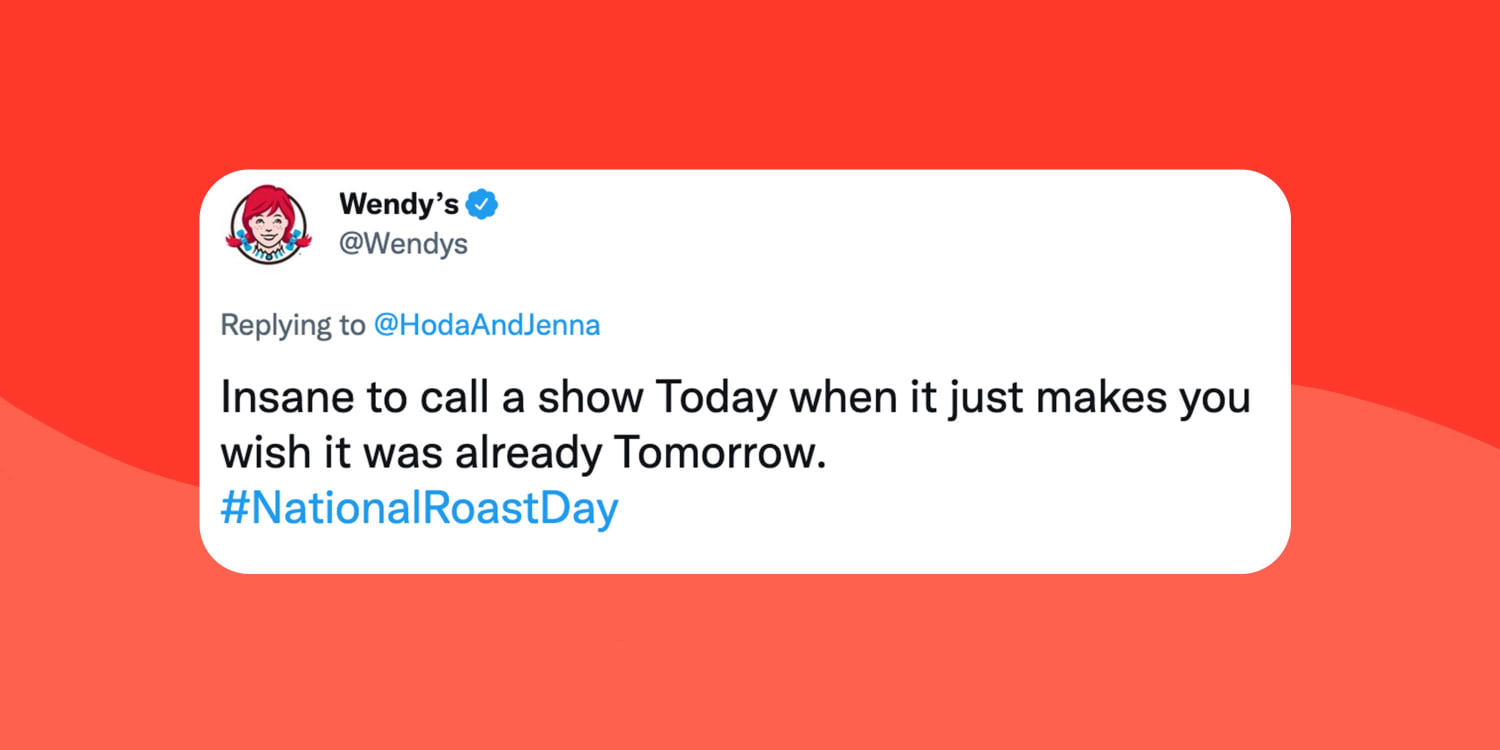
Wendy’s roasts people on Twitter (source: The Today Show)
Leveraging Social Media for Content Distribution
Leveraging social media for content distribution has become an essential strategy for businesses to reach and engage their target audience effectively. Red Bull, an energy drink company, is another excellent example of successful social media content distribution.
Red Bull creates thrilling and adrenaline-pumping content, such as extreme sports videos and high-energy events. They distribute these videos on YouTube, Facebook, and Instagram, capitalizing on their target audience’s interest in adventurous and action-packed content. Red Bull’s social media strategy has allowed them to build a vast online community, with its videos receiving millions of views and interactions, effectively promoting its brand and reinforcing its image as a company associated with excitement and adrenaline.
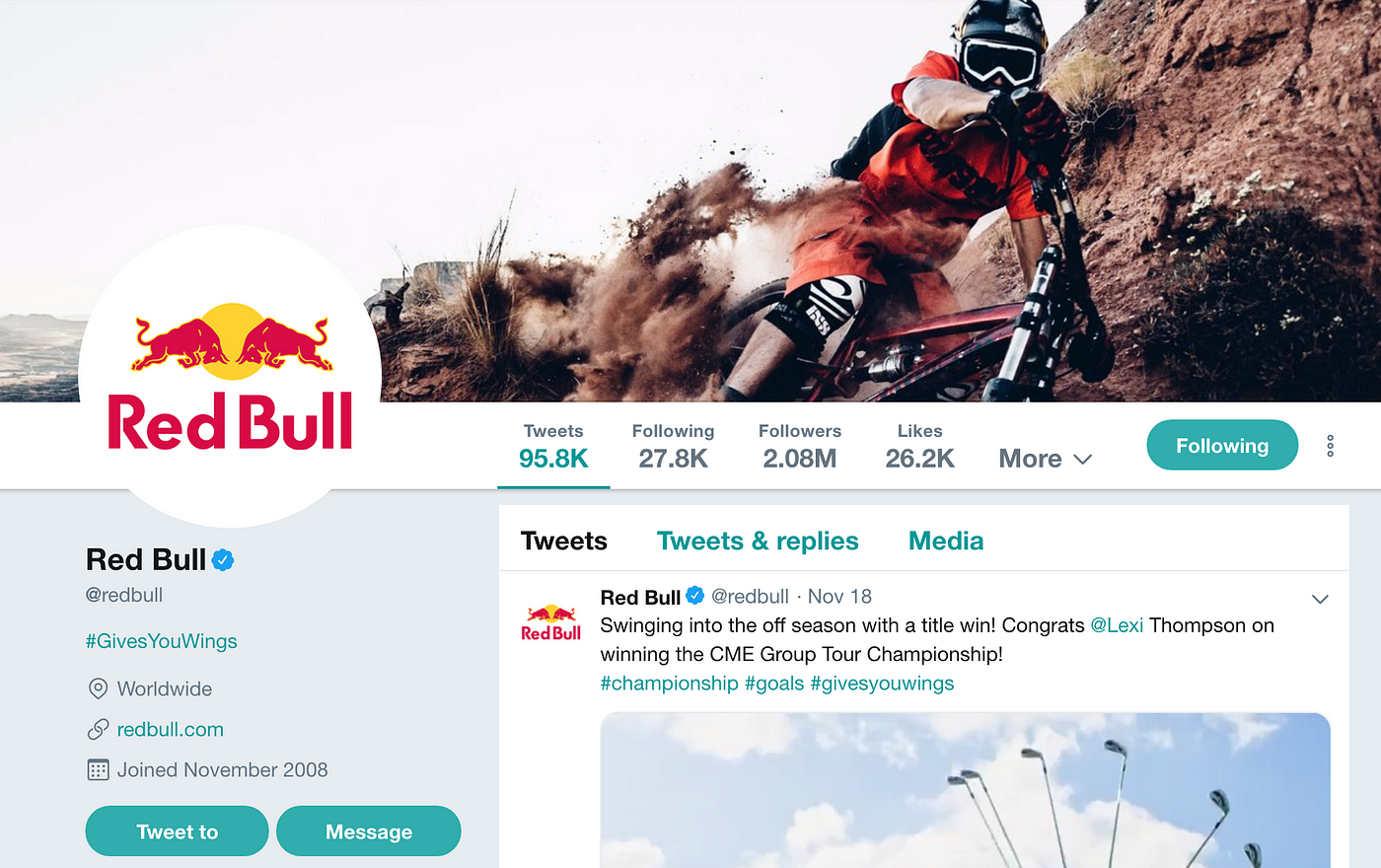
Red Bull’s success on social media (source: Medium)
Influencer Marketing in the Social Media Era
Influencer marketing has emerged as a powerful strategy in the social media era, enabling brands to tap into the vast reach and influence of popular content creators to promote their products or services. A compelling real-life example of successful influencer marketing is the collaboration between Daniel Wellington, a watch company, and various fashion influencers on Instagram.
By partnering with well-known fashion bloggers and Instagrammers, Daniel Wellington was able to showcase their watches to millions of followers who trusted and admired these influencers’ fashion choices. The social media influencers posted aesthetically pleasing photos featuring the watches, along with personalized discount codes for their followers. The campaign went viral, creating a buzz around Daniel Wellington’s watches, leading to a surge in sales and brand awareness.

Daniel Wellington’s influencer marketing (source: Sara)
Social Commerce and the Future of E-commerce
Social commerce is revolutionizing the future of e-commerce by merging the power of social networks with social media automation and online shopping, creating a seamless and engaging shopping experience for consumers. One remarkable real-life example of social commerce is the rise of Instagram’s “shoppable posts” feature.
With this feature, businesses can tag products in their posts, allowing users to click on the tags and directly purchase the items without leaving the app. Fashion brands like Zara and H&M have successfully utilized this functionality, enabling users to effortlessly shop their latest collections with just a few taps. As a result, Instagram has transformed from being a mere social platform into a thriving e-commerce hub.
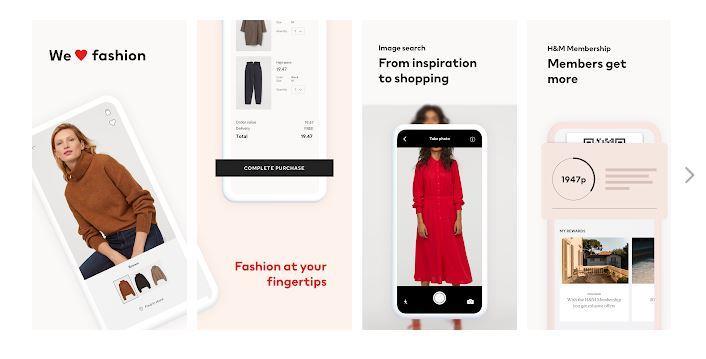
E-commerce at H&M (source: Retail Week)
Conclusion
In conclusion, about “why social media marketing is an important part of Inbound Marketing”, it has revolutionized how businesses connect with their audience and drive growth. Its power to foster engagement, enhance brand visibility, and facilitate meaningful interactions makes it a vital tool for modern marketing strategies.
At Surfline Media, we recognize the significance of social media in achieving business objectives. With our expert social media marketing service, we pride ourselves on crafting tailored campaigns that resonate with audiences, drive real results, and strengthen brand presence. Let us be your partner in harnessing the full potential of social media, propelling your business to success in the digital landscape. Contact us now!

